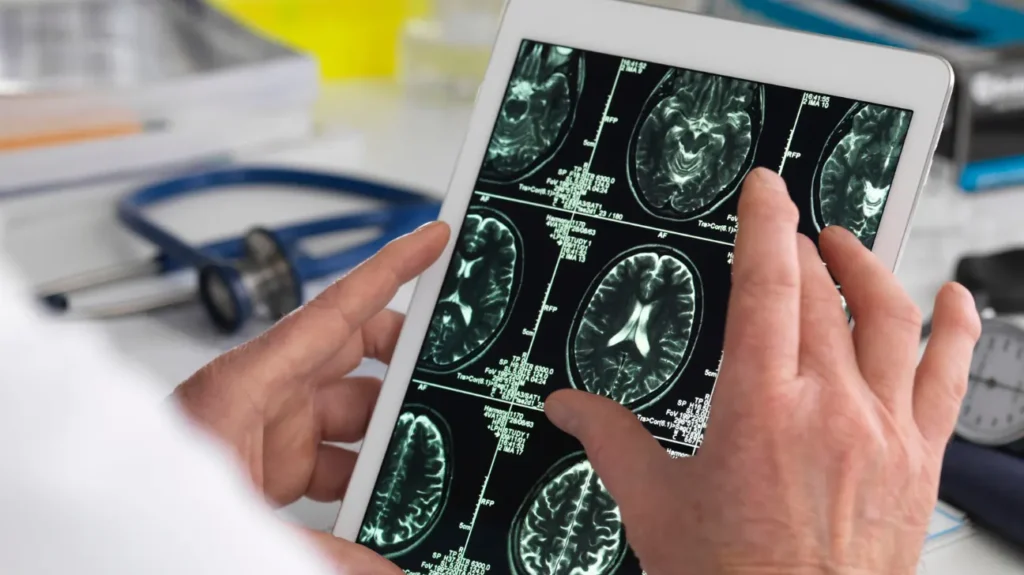Pulsatilla, commonly known as windflower or pasqueflower, is a perennial plant belonging to the buttercup family (Ranunculaceae). Traditionally utilized in herbal medicine for its various therapeutic properties, Pulsatilla has recently garnered attention as a potential nootropic supplement due to its impact on cognitive function and neurological health. This article provides an extensive analysis of Pulsatilla, elaborating on its source, chemistry, physiological mechanisms of action, potential nootropic benefits, dosage guidelines, side effects, drug interactions, and other essential considerations for safe supplementation.
You May Also Like:
Red Sandalwood: Benefits, Dosage, Side Effects, Drug Interactions, and Other Important Information
Sources of Pulsatilla
Pulsatilla species are native to temperate regions of Europe, Asia, and North America, thriving in meadows, grasslands, and forest edges. The most commonly used species in herbal medicine is Pulsatilla vulgaris, which is known for its beautiful, bell-shaped flowers and distinctive foliage. The plant is primarily harvested for its aerial parts, particularly the flowering tops and leaves, which are utilized in various preparations such as tinctures, capsules, and teas.
Active Ingredients
The pharmacological properties of Pulsatilla are attributed to several bioactive compounds, including:
- Saponins: These glycoside compounds have been shown to exhibit anti-inflammatory, immunomodulatory, and antioxidant effects. Saponins in Pulsatilla may contribute to its neuroprotective properties by reducing oxidative stress and inflammation in the brain.
- Flavonoids: These polyphenolic compounds possess strong antioxidant properties, helping to scavenge free radicals and mitigate oxidative damage. Flavonoids may also enhance blood flow and support vascular health, which is crucial for optimal brain function.
- Alkaloids: Pulsatilla contains several alkaloids, which are known for their diverse pharmacological effects, including sedative and analgesic properties. Some alkaloids may influence neurotransmitter systems, potentially enhancing cognitive function and mood.
These active ingredients work synergistically to provide a range of health benefits, particularly in supporting cognitive performance and emotional well-being.
Ease Cold Symptoms, Soothe Flu Discomfort, and Reduce Mucus with Pulsatilla—Shop Now on Amazon!

Chemistry of Pulsatilla
The chemical composition of Pulsatilla is complex, with various phytochemicals contributing to its overall effects. Key components include:
- Saponins: Pulsatilla contains both steroidal and triterpenoid saponins. These compounds interact with cell membranes, modulating their permeability and influencing various cellular processes, including immune responses and neurotransmitter release.
- Flavonoids: Common flavonoids found in Pulsatilla include quercetin and rutin, which are known for their antioxidant and anti-inflammatory properties. They may help protect neural tissues from oxidative stress, potentially reducing the risk of neurodegenerative diseases.
- Alkaloids: Pulsatilla contains several alkaloids, such as anemone and pulsatilline, which have demonstrated neuropharmacological activity. These compounds may modulate neurotransmitter activity and enhance synaptic plasticity, critical for learning and memory.
The interactions between these compounds create a multifaceted approach to improving cognitive function, making Pulsatilla an interesting candidate for nootropic applications.

Physiological Mechanisms of Pulsatilla in the Body and Brain
The physiological mechanisms through which Pulsatilla exerts its effects on the body and brain are still being elucidated. However, several potential mechanisms have been identified:
- Antioxidant Activity: The flavonoids and saponins in Pulsatilla contribute to its antioxidant capacity, helping to neutralize free radicals and reduce oxidative stress in the brain. This neuroprotective effect may play a crucial role in preventing cognitive decline and neurodegenerative diseases.
- Anti-Inflammatory Effects: Pulsatilla’s active compounds, particularly saponins and flavonoids, may inhibit pro-inflammatory pathways, reducing inflammation in the central nervous system (CNS). Chronic inflammation is linked to various neurological disorders, and the anti-inflammatory properties of Pulsatilla may help protect against such conditions.
- Neurotransmitter Modulation: The alkaloids present in Pulsatilla may influence neurotransmitter systems, such as serotonin and dopamine pathways. By modulating these neurotransmitters, Pulsatilla may enhance mood, alleviate anxiety, and support cognitive performance.
- Improved Blood Flow: Flavonoids in Pulsatilla may promote vasodilation and enhance cerebral blood flow, ensuring that the brain receives adequate oxygen and nutrients. Improved blood flow is vital for optimal cognitive function and could enhance mental clarity and focus.
- Stress Reduction: Pulsatilla is often used in traditional herbal medicine for its calming and sedative effects. By reducing stress and anxiety, Pulsatilla may indirectly support cognitive performance, as chronic stress is known to negatively impact memory and learning.
These mechanisms highlight the potential of Pulsatilla as a nootropic supplement, offering a holistic approach to enhancing cognitive health.
Relieve Cold, Flu, and Mucus Symptoms Naturally with Pulsatilla Supplements—Order on Amazon Now!

Nootropic Benefits of Pulsatilla
The potential nootropic benefits of Pulsatilla stem from its ability to support brain health and improve cognitive function. Some of the most notable benefits include:
- Cognitive Enhancement: Pulsatilla may improve cognitive functions such as memory, attention, and learning. Its active compounds, particularly flavonoids and alkaloids, may enhance synaptic plasticity and neurotransmitter activity, leading to improved cognitive performance.
- Neuroprotection: By reducing oxidative stress and inflammation, Pulsatilla may protect against neurodegenerative diseases such as Alzheimer’s and Parkinson’s. The antioxidant properties of its active ingredients help mitigate cellular damage in the brain, preserving cognitive function as individuals age.
- Mood Improvement: Pulsatilla has traditionally been used to alleviate anxiety and improve mood. Its potential to modulate serotonin and dopamine levels may contribute to overall well-being, making it beneficial for individuals experiencing mood disorders or stress.
- Stress Relief: The calming effects of Pulsatilla may help alleviate stress and anxiety, allowing for improved focus and concentration. By reducing the physiological impacts of stress on the brain, Pulsatilla may enhance cognitive clarity and performance.
- Potential for Migraine Relief: Some evidence suggests that Pulsatilla may provide relief for individuals suffering from migraines. Its anti-inflammatory and neuroprotective properties may help reduce the frequency and severity of migraine attacks, improving overall quality of life.
While these potential benefits are promising, it is important to note that more clinical research is needed to establish the efficacy of Pulsatilla as a nootropic supplement fully.

Dosage and Supplementation Guidelines
The appropriate dosage of Pulsatilla can vary based on the formulation and individual health considerations. Due to the lack of standardized dosing guidelines, it is advisable to consult a healthcare professional before starting supplementation. However, general recommendations include:
- Standard Dosage: For general cognitive support, a dosage range of 200 to 400 mg of Pulsatilla extract per day may be appropriate. This dosage is typically found in standardized extracts that concentrate the active ingredients.
- Tinctures: If using a tincture, a typical dose may range from 20 to 40 drops taken one to three times daily, diluted in water. This method allows for flexible dosing based on individual needs.
- Capsules or Tablets: Pulsatilla is also available in capsule or tablet form, with dosages typically ranging from 100 mg to 300 mg per serving. It is essential to follow the manufacturer’s recommendations for dosage and frequency.
- Combination with Other Nootropics: Pulsatilla may be safely combined with other nootropic supplements, such as Ginkgo biloba or Bacopa monnieri, to enhance cognitive function further. However, caution should be exercised to monitor for any adverse effects or interactions.
Support Cold Recovery, Flu Relief, and Mucus Reduction with Pulsatilla—Order Today on Amazon!

Side Effects and Safety
Pulsatilla is generally considered safe for most individuals when taken in appropriate doses. However, some potential side effects and safety considerations include:
- Gastrointestinal Disturbances: Some individuals may experience mild gastrointestinal discomfort, including nausea, diarrhea, or abdominal cramping, especially when taking high doses. It is advisable to start with a lower dose to assess tolerance.
- Allergic Reactions: Though rare, allergic reactions to Pulsatilla can occur, manifesting as skin rashes, itching, or swelling. Individuals with known allergies to plants in the Ranunculaceae family should exercise caution and consult a healthcare provider before use.
- Dizziness or Sedation: Due to its calming effects, Pulsatilla may cause mild sedation or dizziness in some individuals. It is advisable to avoid activities requiring full concentration, such as driving or operating machinery, until the effects are known.
- Hormonal Effects: Pulsatilla may influence hormonal balance due to its phytoestrogen content. Individuals with hormone-sensitive conditions, such as breast cancer or uterine fibroids, should consult a healthcare professional before using Pulsatilla.
- Pregnancy and Breastfeeding: The safety of Pulsatilla during pregnancy and breastfeeding has not been well established. Pregnant or nursing individuals should avoid using this supplement unless under the guidance of a healthcare provider.
Interactions with Other Supplements and Medications
Pulsatilla may interact with certain medications and supplements, potentially altering their effects or increasing the risk of adverse reactions. It is essential to be aware of these interactions:
- Antidepressants and Antianxiety Medications: Pulsatilla’s mood-enhancing properties may synergize with antidepressants or antianxiety medications, potentially enhancing their effects. However, this interaction should be monitored by a healthcare professional to avoid excessive sedation or altered mood states.
- Blood Thinners: Pulsatilla may have mild anticoagulant effects due to its influence on platelet function. Individuals taking blood-thinning medications, such as warfarin or aspirin, should exercise caution and consult a healthcare provider before using Pulsatilla.
- Other Potential Interactions: Pulsatilla may also interact with other herbal supplements that have sedative or anticoagulant effects, such as valerian root or ginseng. Combining these substances may heighten the risk of side effects or alter therapeutic outcomes. It is advisable to consult a healthcare provider before combining Pulsatilla with any other herbal supplements or medications.
Soothe Cold and Flu Symptoms While Reducing Mucus with Pulsatilla—Shop Amazon’s Best!

Pulsatilla for Cognitive and Neurological Health
Pulsatilla, with its diverse range of bioactive compounds and traditional use in herbal medicine, presents a compelling option for those seeking to enhance cognitive function and overall neurological health. While its potential nootropic benefits, such as cognitive enhancement, neuroprotection, mood improvement, stress relief, and possible migraine relief, are promising, further clinical research is needed to substantiate these claims fully.
Before considering Pulsatilla as a supplement, individuals should consult healthcare professionals to ensure appropriate dosing and to avoid potential side effects or interactions with other medications. As with any supplement, understanding the nuances of individual health needs and conditions is vital for safe and effective use.

References:
- Pharmacological activities and molecular mechanisms of Pulsatilla saponins. Retrieved from: https://link.springer.com/article/10.1186/s13020-022-00613-8
- Pulsatilla chinensis saponins ameliorated murine depression by inhibiting intestinal inflammation mediated IDO1 overexpression and rebalancing tryptophan metabolism. Retrieved from: https://www.sciencedirect.com/science/article/abs/pii/S0944711323002131
- The genus Pulsatilla: A review. Retrieved from: https://www.phcogrev.com/sites/default/files/PhcogRev-2-3-116.pdf
Important Note: The information contained in this article is for general informational purposes only, and should not be construed as health or medical advice, nor is it intended to diagnose, prevent, treat, or cure any disease or health condition. Before embarking on any diet, fitness regimen, or program of nutritional supplementation, it is advisable to consult your healthcare professional in order to determine its safety and probable efficacy in terms of your individual state of health.
Regarding Nutritional Supplements Or Other Non-Prescription Health Products: If any nutritional supplements or other non-prescription health products are mentioned in the foregoing article, any claims or statements made about them have not been evaluated by the U.S. Food and Drug Administration, and such nutritional supplements or other health products are not intended to diagnose, treat, cure, or prevent any disease.


